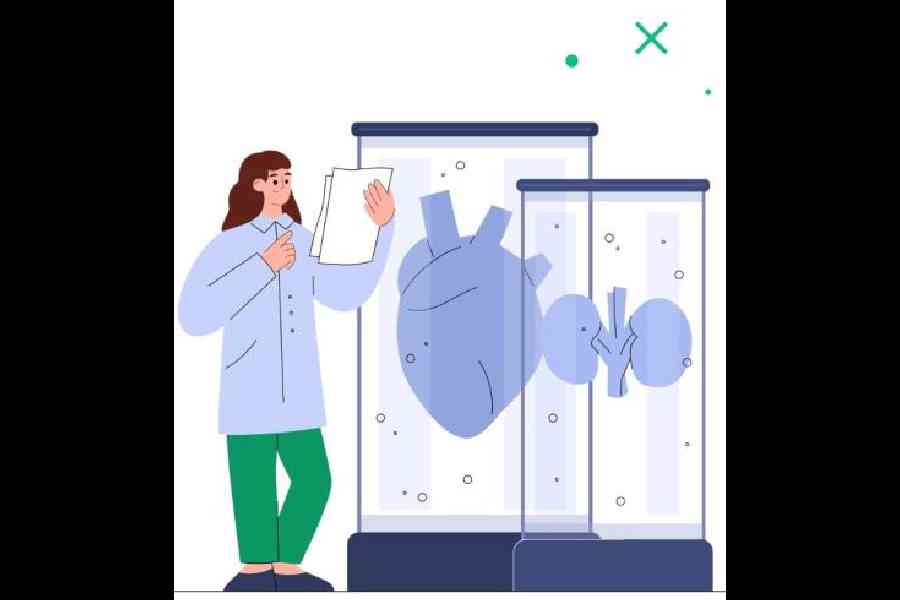Students have various future related queries, they get it solved here


Hands-on experience is key q I study in Class XI. I have opted for science. I’m interested in biomedical engineering. Could you give me some insight into this field?
Prarthana Tarafdar
Narayana Group of Schools, Calcutta
Biomedical engineering blends medicine and engineering to develop innovative healthcare solutions. If you’ve been curious about how medical devices like prosthetics, artificial organs or how MRI and X-ray scanners work, this field focuses on designing and improving them.
Biomedical engineers create advanced treatments, such as artificial organs. They also play a crucial role in making medical procedures safer and more efficient. For example, they design minimally invasive surgical tools — such as robotic-assisted surgery systems — that allow doctors to perform complex procedures with greater precision.
This field is constantly evolving, incorporating artificial intelligence, robotics and nanotechnology to push the boundaries of modern healthcare. Biomedical engineers
can work in hospitals, research labs, medical device companies or even regulatory agencies that ensure healthcare technologies meet safety and quality standards.
In India, some of the top institutions for studying biomedical engineering include the Indian Institutes of Technology in Chennai, Delhi and Mumbai. Other universities include the Vellore Institute of Technology, Jadavpur University in Calcutta, the Manipal Institute of Technology, and the SRM Institute of Science and Technology in Hyderabad.
Do try and choose a programme that provides hands-on research experience and industry exposure to build a strong foundation.
Map your future q I am majoring in geography with maths and economics as my minor subjects. Could you provide insights into career prospects at ISRO and the Geological Survey of India (GSI) as well as in fields such as cartography and meteorology?
Arundhuti Mitra
Lady Brabourne College, Calcutta
The combination you are studying will open opportunities in areas like land surveying, disaster management, climate research and geographic data analysis.
You could work with government agencies, research institutions, private companies or international organisations. Geography is about understanding the world around us — whether it’s mapping landscapes, analysing climate patterns or planning for natural disasters. Climate research involves studying weather patterns, climate change and sustainability while disaster management focuses on planning, response and recovery from floods and earthquakes.
To improve your options, pursue a master’s in geography, GIS or environmental science. Learning GIS software, data analysis and programming can give you an edge. These skills can open up opportunities in urban planning, environmental consulting and mapping technology.
The Indian Space Research Organisation (ISRO) hires geography graduates for remote sensing and GIS roles. Recruitment takes place through the ISRO Centralised Recruitment Board exams. For GSI, the primary pathway is clearing the UPSC geologist exam after completing a master’s in geology or a related field.
Nina Mukherji is a career counsellor and certified psychometric assessor. She conducts workshops in various areas for students. Mail your queries to telegraphyou@gmail.com with “Ask Nina”in the subject line. Don’t forget to add the name of your school or college and a contact number